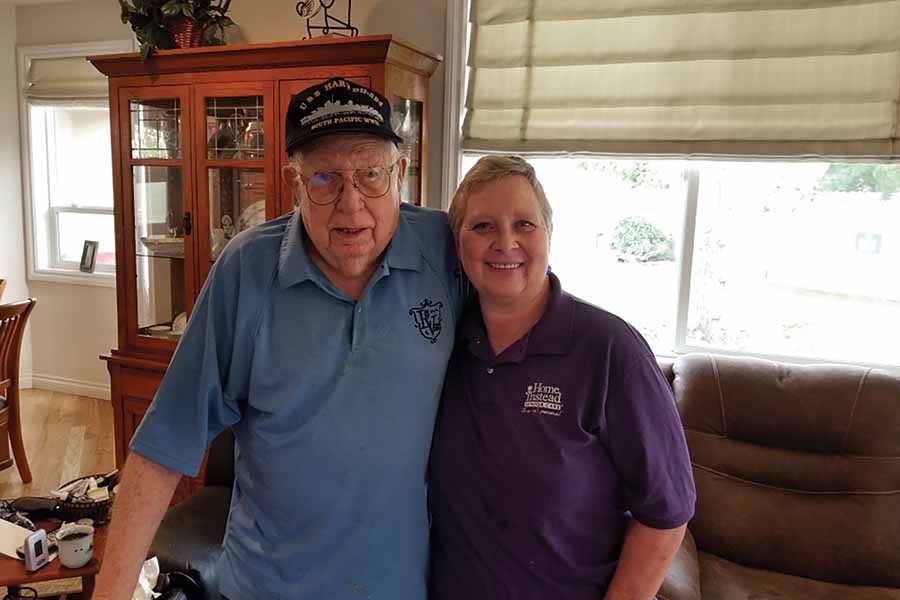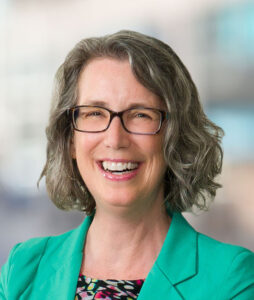
Home » Colonoscopy or end-of-life planning? Many would pick physical exam
Colonoscopy or end-of-life planning? Many would pick physical exam

June 13, 2022
Most people don’t look forward to a colonoscopy.
And most would rather not have a conversation about end-of-life care.
Home Instead Inc., a national company with offices in Kennewick, has launched a new program called Elderoscopy with these two ideas in mind.
Elderoscopy is a critical conversation, complete with “probing” questions, between older adults and their loved ones, examining wants and needs, and setting intentions for topics such as end-of-life plans, finances, relationships and more.
It is a conversation every family should have – no matter how uncomfortable, said Roy Wu, who co-owns the Tri-City-based Home Instead franchise with his wife Paula. They provide elder care services to clients in Benton, Franklin and Walla Walla counties.
“It’s a fun name. At first people may be like, ‘What?’ but it’s a serious topic. We always encourage people to just start. Just have the conversation,” Wu said. “Just start somewhere and don’t be afraid to ask for help because there are resources.”
Research from Home Instead and The Marist College Poll shows that
1 in 6 Americans would rather have a colonoscopy than talk to their loved ones about end-of-life plans. Nearly one-third of Americans over the age of 70 (29%) would prefer or are undecided when having to choose between a colonoscopy and discussing end-of-life plans.
The survey also showed that while 45% of Americans report that they have not talked with their loved ones about how they would like to spend their final years, the Covid-19 pandemic has increased the likelihood of having these conversations. Nearly half (48%) of all adults report the pandemic has made them more likely to talk about end-of-life plans.
To assist in navigating this process, Home Instead developed the Elderoscopy program, which offers tools and talking points to begin the conversation. Resources include conversation starters and guides. Home Instead care professionals also are available to facilitate uncomfortable talks.
When should we talk?
When is the best time to have this conversation with an aging parent or loved one?
There’s no perfect time, but Wu pointed to Home Instead’s 40-70 rule. “If an adult child is within that range of 40ish and has an aging parent who is a generation older – now is the time to have that conversation,” he said.
The Centers for Disease Control and Prevention recommends a colonoscopy at age 45, which is a good reminder it’s time for the “elderoscopy” conversation, Wu said.
“We can talk about it now so we can have an understanding, so when the time comes, it’s not a time of conflict; it’s a time of memory and being together. It is tough to have the conversation,” Wu said.
Tri-Cities’ aging population
The Wus have owned the Kennewick-based franchise for eight years. They serve about 105 clients monthly.
Wu said his business has grown in the past eight years as the Tri-City area population ages.
“Now we’ve had two generations who’ve worked out at Hanford, or three or four generations in ag out here. They’re like, ‘We’ve built this house and I’ve always lived here and I don’t know where else to go,’ ” Wu said.
Some of those seeking care today Wu refers to as a vertical generation, or those who are still working and may have Hanford Fridays off, or they’ve got grandchildren or college kids and they’re juggling a busy life. Or they may live on the west side and can’t travel to the Tri-Cities as often as they’d like to be with their aging parents.
Some seek out Home Instead to arrange for care visits a few times a week. (The company’s minimum plan is 12 hours a week.)
A gradual start and early conversations may mean less heartache later as the elderly come to accept and appreciate occasional at-home care that can then be increased later, Wu said.
Home Instead can provide a variety of services, from personal care like grooming and bathroom assistance, to transportation to appointments or activities, to companionship, as well as chronic illness care 24/7 – all based in the clients’ home.
“We see these conversations between loved ones happening every day, and rarely does someone say they wish they put it off longer,” Paula Wu said. “To support local families, we have resources available to ensure a smooth transition of care – regardless of whether it is needed now or in a few years.”
Home Instead has 15 other regional offices in the state and 1,200 global offices.
Go to Home Instead’s Elderoscopy website to get the conversation started: homeinstead.com/elderoscopy.
Go to honorexpert.com to speak with a social worker or gerontologist for questions related to care options. The service is free.
6 questions to get the conversation started
Where would I live to live out my senior years?
What lifestyle do I desire as I grow older? Rocking grandbabies or kayaking rivers?
How do I plan to stay healthy as I age?
If I find myself single, what will I do? Embrace newfound alone time, or look for love online?
How do I see myself getting around if I can no longer drive?
How do I want my final years to look for me and my family? Having these discussions earlier can help to prevent last-minute decision-making during a crisis.
Source: Home Instead Inc.
Local News
KEYWORDS june 2022





